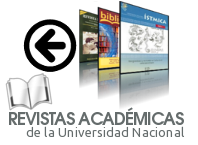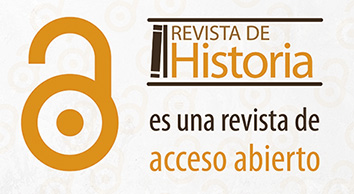El impacto del desarrollo del café en un territorio no cafetalero: Conformación del municipio de mozos de Colotenango en Guatemala, 1877-1947
Keywords:
Caficultura, mano de obra, liberalismo, Guatemala, municipalidad indígena, Coffee growing, labor, liberalism, indigenous municipalityAbstract
This article analyzes the way in which Colotenango, a mam territory in the impoverished Guatemalan highlands, became a part of the liberal economy in the nineteenth century by constituting a municipio de mozos for the coffee export plantations located in the coastal region. Since this land had traditionally been considered not apt for coffee-growing purposes, the governmental policy aimed at boosting the economy based on this product, had devastating effects on the municipalities of the indigenous highlands, such as the case of Colotenango. Particularly, this article delves into the role played by the Municipality in the agricultural export system, which became the essence of continuous jurisdictional conflicts in the region still present today.
Downloads
Published
How to Cite
Issue
Section
License
Los autores que publican en esta revista están de acuerdo con los siguientes términos:
1. Los autores conservan los derechos de autor y garantizan a la revista el derecho de ser la primera publicación del trabajo bajo una Licencia Creative Commons Atribución-NoComercial-CompartirIgual 4.0 Internacional (https://creativecommons.org/licenses/by-nc-sa/4.0/) que permite a otros compartir el trabajo con un reconocimiento de la autoría del trabajo y la publicación inicial en esta revista (componente BY o atribución). Coincidente con la política de Acceso Abierto, no se podrán hacer usos comerciales de los contenidos publicados por esta revista (componente NC). Se permitirán las obras derivadas (remezcla, transformación o creación a partir de la obra original) siempre y cuando sean distribuidas bajo la misma licencia de la obra original (componente SA).
2. Los autores pueden establecer por separado acuerdos adicionales para la distribución no exclusiva de la versión original de la obra publicada en la revista (por ejemplo, situarlo en un repositorio institucional o publicarlo en un libro), siempre y cuando: a) sea reconocida la publicación original en esta revista (componente BY); b) no se haga uso del material de reuso con propósitos comerciales (componente NC); c) el material de reuso sea distribuido bajo la misma licencia de la obra original (componente SA).
3. Se permite y se anima a los autores a difundir sus trabajos electrónicamente (por ejemplo, en repositorios institucionales o en su propio sitio web) antes y durante el proceso de envío, ya que puede dar lugar a intercambios productivos, así como a una citación más temprana y mayor de los trabajos publicados (Véase The Effect of Open Access) (en inglés).












_2.23_.09_p_._m_._.png)
_2.35_.17_p_._m_._.png)

